
Schuyler Waynforth, interviewed by Sandra Dodd
| First, so that you can read the interview more easily, "Schuyler" is pronounced SKY-ler. Now you can read it aloud to your friends and family! 🙂 (and Linnaea is lih-NAY-ah) |
Schuyler Waynforth is the mother of Simon (16), Linnaea (13) and and wife of Dr. David Waynforth, a behavioral scientist and medical-school professor. I met the family when the children were very young and they were living in Albuquerque, where both Schuyler and David were studying anthropology. They have lived in Belize, Japan, the U.S., the U.K. and now Australia.
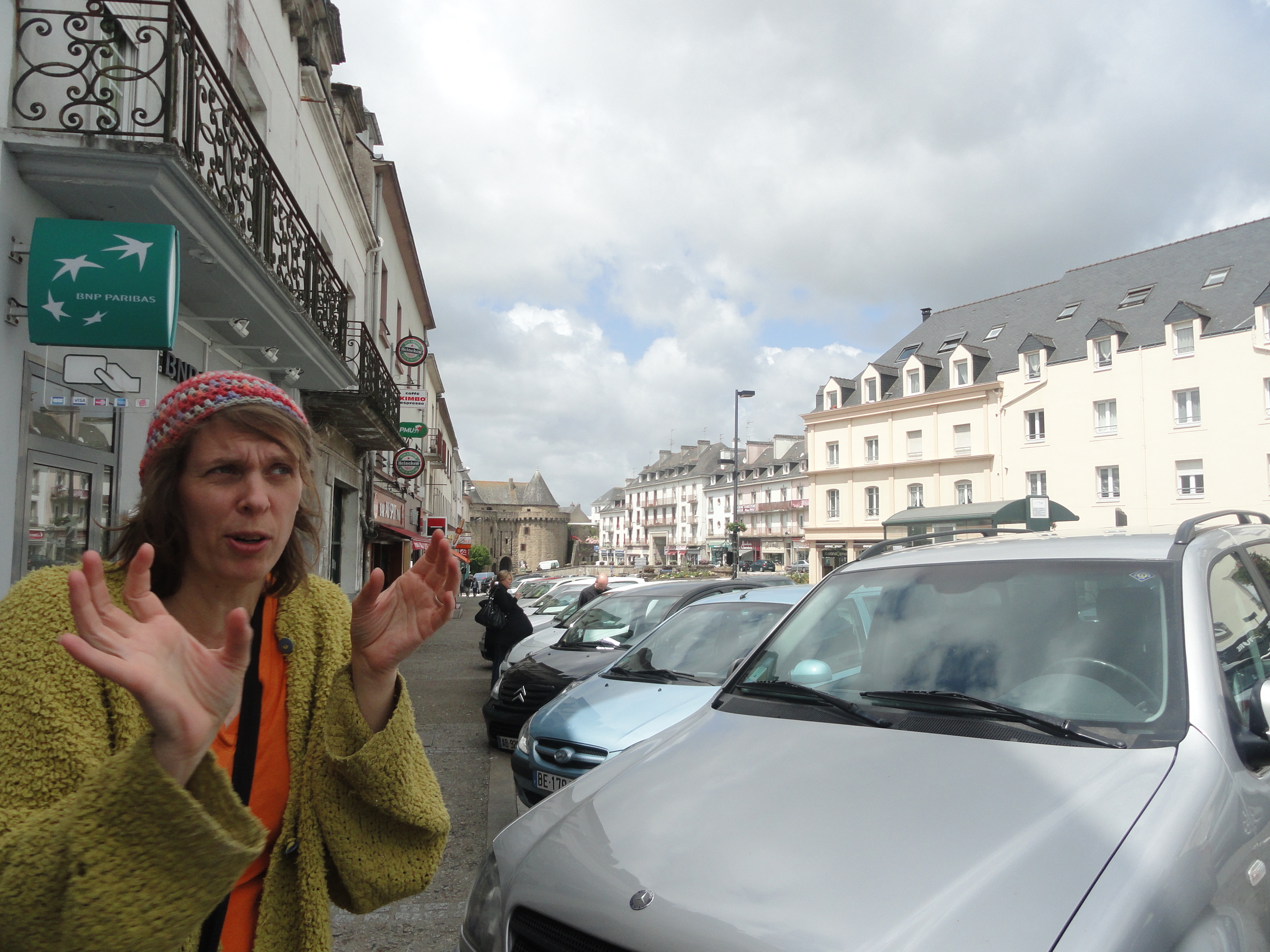 Sandra: You're the only family I know who has lived on four continents! I think your kids were too young to be homeschooled when you were in Japan, but you've lived in the U.S., England and Australia. That alone seems like an incredible opportunity.
Sandra: You're the only family I know who has lived on four continents! I think your kids were too young to be homeschooled when you were in Japan, but you've lived in the U.S., England and Australia. That alone seems like an incredible opportunity.
Schuyler: There were also those couple of months in Belize with baby Simon. I'd never thought of my living in so many places on a continental scale.
Japan is where I first found out about unschooling. So, even though Simon was only 4, which is school starting age in Japan, that was really where I began exploring and implementing unschooling practices and understandings within my parenting and educational approaches.
Our home remains the same. Maybe that is in response to moving so frequently. Maybe that's normal for people. Moving from one place to another, I haven't changed my approach to parenting, my connection with Simon or Linnaea, my engagement with them and with David. I suppose wherever we move, there we are.
When Simon and Linnaea were 7 and 4 we were at a Sainsbury's parking lot playing while David was in a nearby car dealership filling in the paperwork for a car. They were playing on the walls surrounding the parking lot, while I stood nearby to help if needed or to find something else to engage with if their interest began to wane. It didn't. They were talking and laughing and having this really good time playing on a stone and concrete wall on the outskirts of Durham City in a car park of a grocery store. That has been my experience with them 'round the world. I think, in part, that their ability to find engagement where they are comes from having a secure base. Their background is safe and solid such that they can explore with impunity in whatever foreground they find themselves.
Unschooling has only changed with my growing ability to implement it. Our locations never have changed the fundamentals of how I handle Simon's and Linnaea's education. It's just changed the setting and the opportunities to explore and play. We got to have sword fights in castles living in the UK. Jumping from ruin wall to ruin floor, foam sword in teeth adds amazing realism to that Errol Flynn moment.
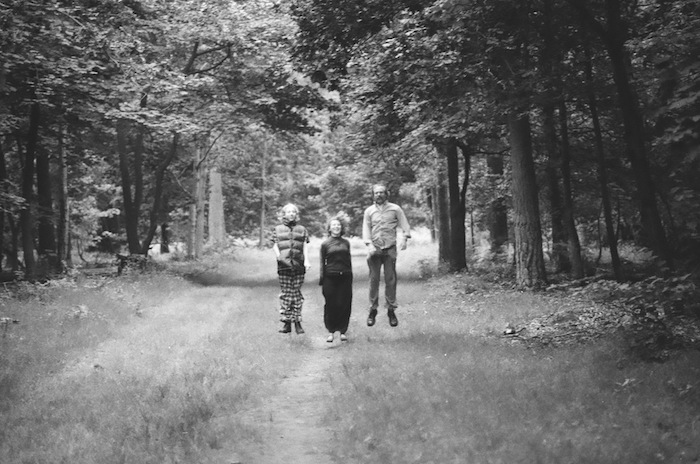 —Photo by Schuyler, in Thetford Forest; cropping and mouseover by Sandra
|
Sandra: I don't suppose unschooling is often what people expect it to be. You seem especially calm and confident. Schuyler: When I started unschooling I started slowly. I read a lot and I implemented changes slowly. David and I talked a lot about what I was reading and he trusted me enough, he knew that I would research and think on it, to let me have close to the free rein end of the spectrum.
Going slowly meant that I was building up abilities. I was getting my feet underneath me well enough so that when I made a misstep, when I went away from what I was aiming for, I knew it, I could feel it and I could slowly turn myself back on the track I wanted to take.
Going slowly also meant that Simon and Linnaea never really went wild with the sudden change in parenting. Because it was steady, because it was slow and gradual, but steady and directional, when we ended up unschooling they’d been moving from a more top down parenting approach to a partnership for a while. They didn’t have to gorge; they didn’t have to stay up all night; they didn’t have to watch every hour of television that was available. And on the occasions when they did make those choices, the day that Linnaea ate bag of wotsits after bag of wotsits, I had gained enough perspective to know that she’d eaten other things the day before and would be likely to eat different foods the next day.
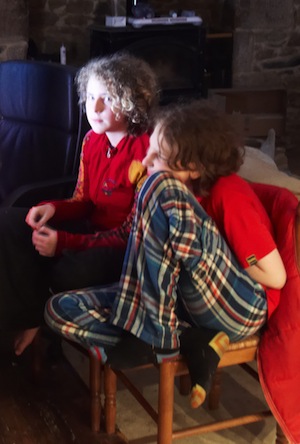 More than all of that, what helps me to be confident now are Simon and Linnaea and David. I have children who are curious and interested in the world and interesting to be around. I have a husband who enjoys my company and whose company I enjoy. I live in a home that is full of peace and noise and laughter and affection and joy. There is nothing that I ever knew before unschooling that suggested that parenting could be this good. I am confident because unschooling works.
More than all of that, what helps me to be confident now are Simon and Linnaea and David. I have children who are curious and interested in the world and interesting to be around. I have a husband who enjoys my company and whose company I enjoy. I live in a home that is full of peace and noise and laughter and affection and joy. There is nothing that I ever knew before unschooling that suggested that parenting could be this good. I am confident because unschooling works.
Joyce Fetteroll wrote this on unschooling basics a bit ago:
What we discuss here works for anyone. It's based on human nature not on personality. It works on kids. It works on spouses. Which is why we try to help people understand the inner workings rather than handing them solutions. If they can understand what works and why then they can use the tools to craft solutions that work for the particular mix of personalities in their own families.
I can testify to that. Unschooling works. I’m confident about that.
Sandra: What are some of the emotions you have experienced along with all this special parenting you're doing? You mentioned change and growth, a bit.
Schuyler: I’ve had moments of awe. I’ve had moments of the sweetest affection I’ve ever felt. And such wonder! So much wonder.
There have been moments where I recall the poster in a childhood friend’s bathroom of a kitten hanging from a string with the caption of “Sometimes you need to tie a knot and hang on.” But those moments were invariably about my being tired or hungry or just done, something which took learning to recognise. Something which both Simon and Linnaea recognise already, such a powerful tool that I didn’t master until I was in my thirties.
In moments when I fail to be the parent I want to be I feel such guilt. Deb Lewis has said that she feels nauseous when she's mean to Dylan. She feels physically ill. I don't have that response, but I do feel lower than a snake's belly. Being better in the next moment helps improve that low feeling, that small and mean feeling more than continuing to feel low and guilty.
Sandra:
That's beautiful, and inspiring. I expected you to breeze through the emotional questions to get to the scientific business, but I'm glad you lingered there, in your feelings.
For years, in the discussions, we've depended on you to save the day with science, when a discussion was embroiled in emotion and confusion. You've done it dozens of times. I know you're very interested in how humans live and function, singly and in relationships. Your perspective always takes the discussion to a higher level.
Schuyler: I trained as an evolutionary biologist. I used to think that’s why I look at the world the way I do. But I’ve come to the conclusion that I sought evolutionary biology as a field of interest because of the way I look at the world.
I like to understand how or why something works a certain way. If something puzzles me, if I don’t know how to look at something clearly or well, I tend to dig at it. I like clarity and understanding and I’ve used methodologically derived research to inform my thinking, mostly. It certainly helped a lot more when I was starting out. I needed to know how and why more. So, for example, when Simon wasn’t reading at 10 or 11 I spent lots of time looking at statistics about ages at reading. I wanted to think about what it meant at a population level for a 10 or 11 year old not to be reading. It turns out it doesn’t mean that much. It turns out that some folks read earlier and some folks read later. It turns out I was a worried mother who probably existed in a population of worried mothers. Fortunately, I turned to statistics instead of nagging at Simon. Fortunately, I found a way to approach my worry that kept Simon out of the harm I could do by worrying him.
Kelly Lovejoy has suggested that people who need to control their children start a garden instead. I choose to do research when I feel a need to fix something. Mostly, I find, the things I want to fix aren’t really broken.
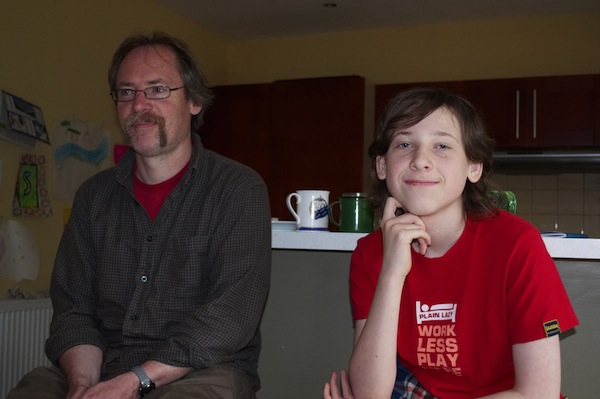
Sandra: Your husband is Dr. David Waynforth, who teaches medical students. His research and interests have been affected by unschooling a time or two, right?
Schuyler: All of David's research has had some relationship to his life, to some extent. He started out doing research on mate choices. He did that for a little while and then moved into parental choices. Parental care decisions. His research became about day care versus at home care. He's done research on food choice, on Pam Sorooshian's marginal value theorem perspective on choice as applied to food. His more recent research is moving away from our lives, maybe, a little bit. He's looking at birth spacing and child health at the moment.
His research is looking at the human experience through an evolutionary lens. Using an evolutionary paradigm means that it didn't matter what he looked at, if the behaviour was an adaptive trait the evidence should demonstrate that. His research, has handily enough, found that our choices make sense, at least given the aims that we've had as parents. In the end, the fact that our lives were at the forefront of his thinking is not terribly surprising, I suppose. I like that. I really like that David has us at the front of his thinking.
Sandra:
It's interesting, and fortunate, to have a partner who's researching, and then writing up and teaching, some of the things you're doing with your children at home.
Your kids are both teens now, right? I suppose your parental aims have evolved.
Schuyler: By the time this is in print, I guess, they will both be teens. Linnaea is 12 at this moment, but it’s only a couple of weeks until she’s 13. It feels like a monumental change, but it’s only a different moment, I suppose. It’s been accretionary, their moving away from the baby each was, the toddler, the little boy and little girl into these teenagers. Lots of little moments have grown them into who they are now. I’m so glad, in these monumental moments, to have been there for so many of the more mundane moments. I feel so lucky that they still want me around for the ones happening now.
My parental aims have changed. I suppose it has grown to be less about me; or the idea that I’m aiming Simon or Linnaea at something. I have hopes for them. I hope that they enjoy their lives. I hope that their moments are interesting and engaging. I’ve always hoped for happiness. I think I don’t hope so much for that these days as I see it as a part of their every day. I believe, extrapolating out from their now, that their future will be filled with many happy moments.
Sandra: Thank you for doing this.
Schuyler:
Thank you for doing these interviews. I’ve enjoyed reading Joyce Fetteroll’s and Pam Laricchia’s. I feel esteemed to be among such beautifully clear writers.
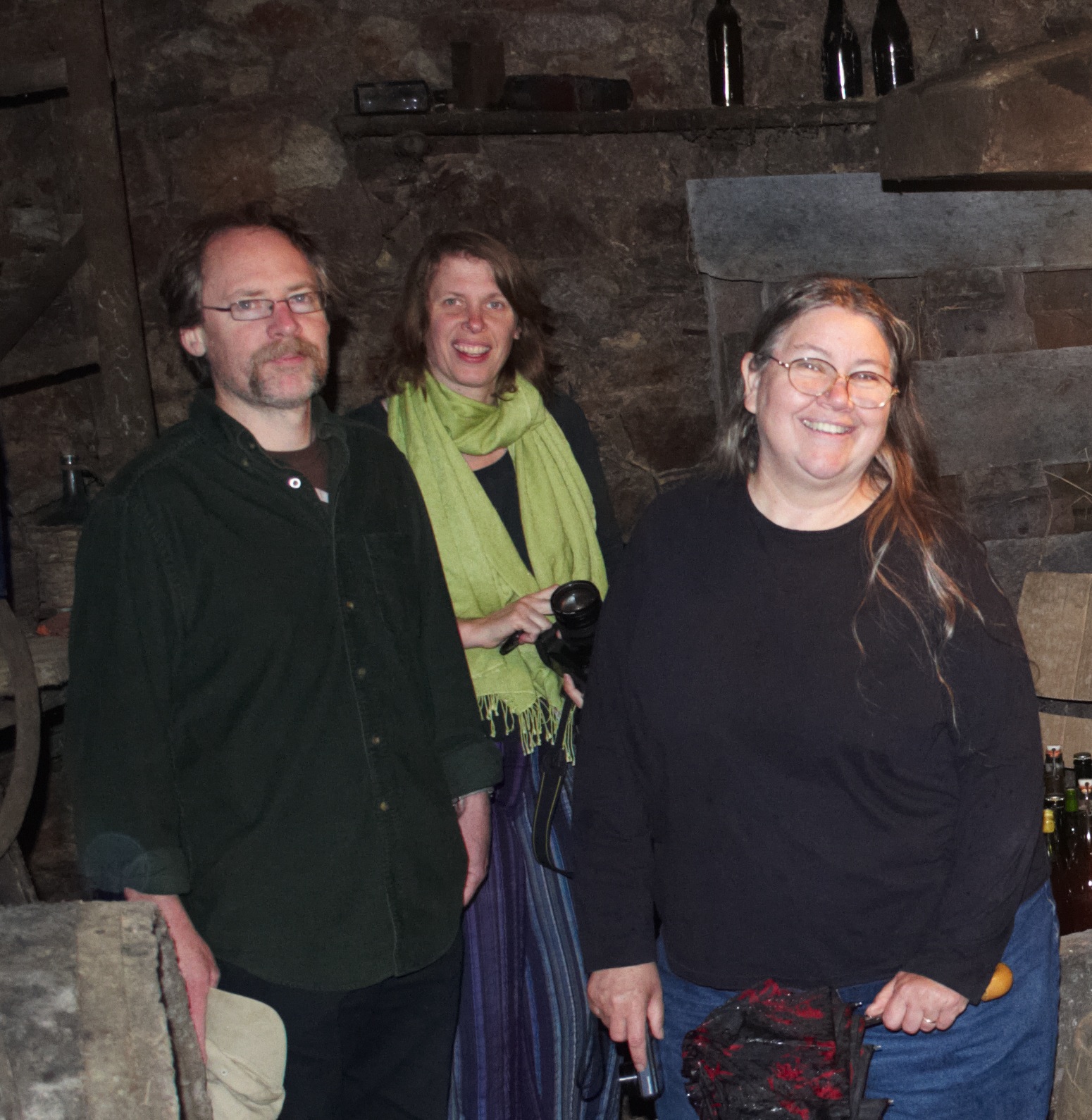
Thank you, also, for your patience. I’ve been slow to respond. In the time you’ve been interviewing me I’ve worked on digging an eight-foot-diameter hole that’s one foot deep for the three avocado trees I’ve got to plant. I’ve been chased by bull ants while weeding around the lime tree, but only one caught and stung me. I’ve baked a few loaves of bread and a batch of lime squares for David to take to work to share with his colleagues. I’ve seen Arlo Guthrie perform live. I’ve played a castle defence game for hours. I’ve gone swimming with dogs and walked dogs and taken dogs out to pee over and over again in the hopes that Linnaea’s sweet little puppy will get the whole it’s better to pee outside idea. All the while I’ve been thinking about the questions you’ve put to me. I’ve built up my answers in the moments and minutes and hours of the play that I’ve engaged in with my family and within my life. So thank you for waiting. I enjoyed the process.
Sandra Dodd has written about unschooling for over twenty years now, nearly every day. She lives in Albuquerque, but visits other unschoolers to learn more about their fascinating lives.
The top photo is by Sandra Dodd, taken in Hennebont, in Brittany, in 2011. The black and white is by Schuyler. The other three photos were taken by our host in France, Leon McNeill. In the last one, of David, Schuyler and me, we were being shown an old but still operational cider press at their next-door-neighbor's house in Baud. Click it for the larger image with more of the building and equipment. (When that one loads, you can click it for another enlargement.)

